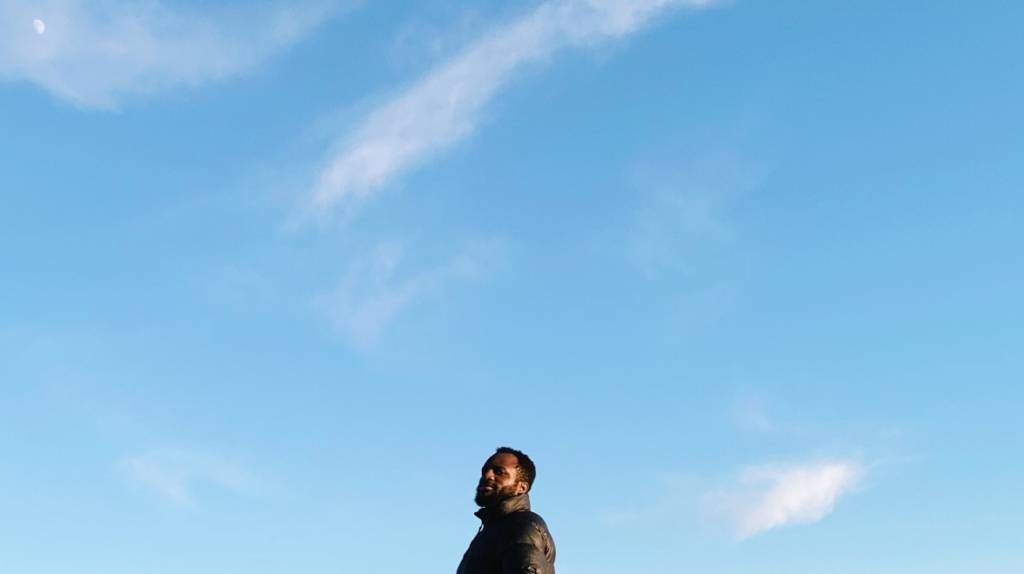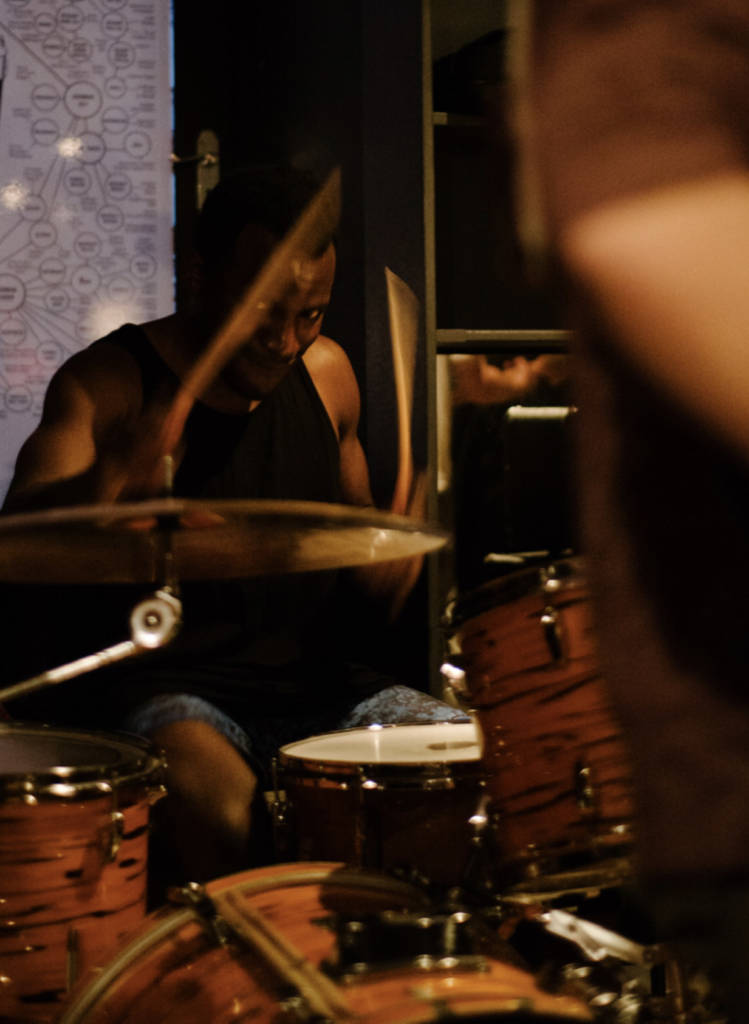
13.08.21
Spotlight is a monthly feature, highlighting the work of creative people in Dundee. This month we catch up with Femi, also known as mnlghtr . He is a musician, producer and recordist with strong connections to the DIY music scene in Dundee. He is a drummer for Stonethrower and writes and produces his own tracks too.
Laura: You are a solo musician, a producer and in a band! Tell us a bit about yourself?
Femi: I’ve been involved in music since my late teens. I came to Dundee for university and ended up staying, mostly because of ties to the scene. Over the years, I’ve been involved in multiple projects as a musician, producer and recordist. I currently drum in Stonethrower. As an artist, I’m Femi. As a producer, I’m mnlghtr.
L: I heard you are currently working on some solo material, can you share anything with us?
F: I am. Previously, I was so zoned into the producer headspace that it’s taken a while to get comfortable with creating from scratch. I’d second-guess every idea and stifle it before it left my head. Lockdown gifted me space to let that go, and I wrote a few songs. I like them, so I’ll get them recorded soon!
L: As we move towards a new normality, what are you most excited about?
F: Definitely gigs. It looks like people have been very active writing, recording etc. Excited to see what they’ve been up to as the lockdown projects start trickling out. I’m also a huge Laura Mvula fan, and I’m looking forward to watching her perform. Finally, there have been a few post-lockdown projects lined up that I’m very excited about contributing to.
L: How would you describe your dream live performance?
F: A small band with strings, brass and a harpist, playing to 100 people, on a stage designed by Es Devlin.
L: As a person who can do it all, could you tell me how you feel about collaboration and the benefits of being flexible in your practice?
F: I mean, with bands it’s inevitable; the glue that binds. In the other scenarios, however, sometimes there’s a caginess about sharing ideas, especially in smaller creative communities. I understand that it’s competitive, but I do think it limits the potential of the project.
I’m lucky to have a musical foundation built on a lot of genres. It’s handy when it comes to establishing reference points …vocal stylings, drum sounds etc. Of course it comes into play during creative sessions; knowing when to sit back in the process and when to step forward.
L: Thinking about the sustainability of the sound sector here; how did you get started on the scene here? What does the ecology look like?
F: I’ve been lucky to have close friends who need audio captured and/or an extra perspective. It’s allowed me to grow in that regard. Very much a word-of-mouth thing. As recording equipment has become more accessible, the demand has shifted and it’s definitely become more challenging to maintain a practice in smaller communities…if you’re not working for free or for cheap. Overall, I think it’s a good thing though. If you have the ears and the flair (or the potential for both) it’s a lot easier to make your mark than it was 20 years ago. A great time to be alive.

L: Do you have any words of wisdom for early career musicians in Dundee?
F: Know and be yourself. I think we’re at a point of saturation and whilst the formulas are well-established, the trendsetters are the ones who leave more of themselves in there. Also, keep an open mind; there’s a lot to learn from other musicians and genres.
L: Is there anything that people don’t realise are obstacles for people in the DIY scene?
F: Probably there not being enough people to get behind you if you don’t play indie music. That’s inevitable though, given the size of the town and acts that have garnered popularity. I actually came to Dundee halfway through the hype wave resulting from Radio 1’s Big Weekend here and the indie bands that led that charge. What a time.
L: What would you like to see audiences and organisations do to support the music scene in Dundee?
F: I think people do show up; it’s just a population density thing. Maybe a bigger effort to keep the student population informed/involved. As far as support from organisations: easily-accessible listings, help with soundproofing venues so they don’t get closed because someone else wants to build flats or a hotel nearby…
A lot of people see music venues as commercial spaces, but in places this small, I feel they should also be recognised as cultural spaces and supported as such.
L: Lastly, are there any organisations or people you would like to give a shout out to?
F: Shout out to Make That A Take for maintaining the community it’s managed to maintain. Shout out to Robin Sutherland for making kick-ass mastering services so accessible to the local scene. Final shout out to everyone who interacts with artists respectfully and equitably.

If you would like to support us in creating even better content, please consider joining or supporting our Amps Community.